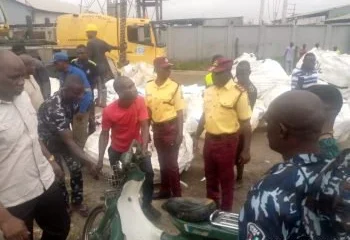News Update
Road Crashes Could Kill 65,000 Nigerians by 2030

Former Minister of Aviation and ex-Corps Marshal of the Federal Road Safety Corps (FRSC), Osita Chidoka, has warned that Nigeria could lose as many as 65,000 people to road crashes by the year 2030 if urgent nationwide reforms are not implemented.
Also Read: FRSC Reports 6,858 Road Crashes, 3,433 Deaths in Nine Months
Chidoka issued the warning while speaking at a transport safety forum, where he described Nigeria’s road-safety outlook as “deeply troubling” and reflective of a country that has failed to invest properly in driver training, road engineering, emergency response, and commercial-vehicle regulation.
According to him, current trends show that Nigeria records an average of 41,000 road-related deaths annually, a number he says could escalate sharply due to rising vehicle population, deteriorating road infrastructure, and widespread disregard for traffic laws.
“If we continue on this trajectory, Nigeria may lose up to 65,000 citizens every year by 2030. This is not speculation. It is a predictable outcome based on existing data points,” Chidoka said.
He explained that many of the deaths recorded on highways result from speeding, poor vehicle maintenance, drunk driving, weak enforcement, and the dangerous condition of several federal and state roads.
Chidoka also criticised the collapse of institutional systems designed to protect road users. He noted that although Nigeria has made progress in emergency medical response and patrol coverage, the growth of untrained commercial drivers, unregulated state parks, and ageing heavy-duty vehicles has wiped out those gains.
“A nation that depends 95 percent on road transport must treat road safety as a national security issue. We cannot continue to lose thousands of our citizens to avoidable crashes,” he added.
He called for a full audit of Nigeria’s most dangerous highways, stricter licensing requirements, annual medical checks for commercial drivers, mandatory speed limiters in all buses and trucks, and the establishment of properly equipped trauma centres along long-distance routes.
Chidoka also urged the Federal Government to prioritise the maintenance of critical corridors such as the Abuja–Lokoja Road, East–West Road, Lagos–Ibadan Expressway, and Enugu–Onitsha Expressway, describing them as “routes with consistently high casualties.”
Transportation analysts say Chidoka’s warning reflects a longstanding national crisis, with Nigeria ranked among the countries with the highest road-traffic fatality rate in Africa.
As the year winds down and “ember-month” travel intensifies, the FRSC is expected to increase highway patrols, carry out more mechanical checks on commercial buses, and step up public-safety campaigns.
But experts warn that without structural reforms, Nigeria risks facing the grim future Chidoka predicts.
RoadKing.ng will continue exposing, reporting, publishing, and educating until Nigeria’s roads become safe for every citizen.


















